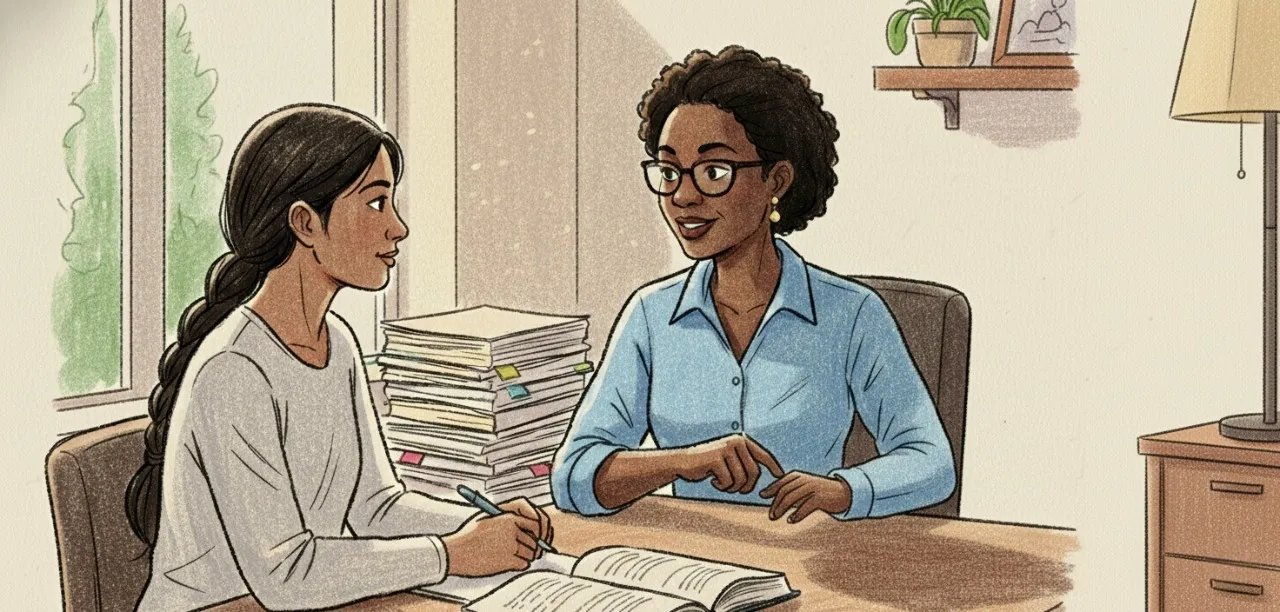Navigating the labyrinth of U.S. immigration law is a daunting task under the best of circumstances. When you’re fleeing violence or recovering from a crime, it can feel downright impossible. Yet, within that complex system, there are two powerful, life-altering lifelines: the VAWA self-petition and the U Visa. They sound similar, both offering protection to vulnerable immigrants, but they operate in fundamentally different arenas.
Think of it like this: VAWA is about your relationship to the abuser, while the U Visa is about your relationship to a crime. One is a deeply personal, private path to safety; the other is a civic act, a partnership with law enforcement. Understanding which door to knock on is the first, crucial step toward reclaiming your life. This guide will draw the map, cut through the jargon, and give you the unvarnished truth about each option.
Understanding VAWA (Violence Against Women Act) Self-Petition
What is VAWA?
Don’t let the name fool you. The Violence Against Women Act (VAWA) is a landmark piece of legislation that protects all victims—women, men, and children—of domestic abuse. Its most revolutionary feature in the immigration context is the “self-petition.” It allows certain victims to apply for legal status on their own, without the knowledge, consent, or participation of their abusive U.S. citizen or permanent resident family member. It’s a clean break, a tool designed to sever the control an abuser often wields through the threat of deportation.
Who qualifies for VAWA?
Eligibility hinges on a specific family connection. You may qualify if you are the victim of battery or extreme cruelty committed by:
- A U.S. citizen or lawful permanent resident (LPR) spouse or former spouse.
- A U.S. citizen or LPR parent.
- A U.S. citizen son or daughter who is 21 years of age or older.
Crucially, you must prove you resided with the abuser, the relationship was entered in good faith (in cases of marriage), and that you are a person of “good moral character.”
Types of abuse covered under VAWA
VAWA defines abuse broadly. It’s not just about physical violence. The law recognizes that “extreme cruelty” can be just as damaging. This includes psychological abuse, emotional manipulation, verbal threats, sexual abuse, intimidation, isolation, and economic control. The pattern of coercive behavior is what matters.
Immigration benefits of VAWA self-petition
An approved VAWA self-petition (Form I-360) grants you “deferred action,” which is a temporary protection from deportation, and makes you eligible for work authorization. More importantly, it places you on a pathway to a green card. For immediate relatives of U.S. citizens (spouses, unmarried children under 21, and parents), you can often apply for your green card at the same time.
How to file for VAWA: forms and evidence required
The cornerstone of a VAWA case is the Form I-360, Petition for Amerasian, Widow(er), or Special Immigrant. The evidence you provide is your story. It requires meticulous documentation, including:
- Proof of the abuser’s status (e.g., birth certificate, passport, green card).
- Proof of the qualifying relationship (e.g., marriage certificate, birth certificates).
- Evidence of the abuse: This can be police reports, court records, medical records, photos, personal declarations, and affidavits from witnesses like friends, therapists, or social workers.
- Proof of joint residence and a good-faith relationship.
- Evidence of your good moral character.
What is a U Visa? Eligibility and Benefits
Definition of U Visa
The U Visa is a completely different animal. It’s designed as a tool for law enforcement. Its purpose is to protect non-citizen victims of certain serious crimes and to encourage them to cooperate with police and prosecutors without fear of being deported. It strengthens the ability of law enforcement to investigate and prosecute crimes like domestic violence, sexual assault, and human trafficking.
Who is eligible for a U Visa?
To be eligible for a U Visa, you must meet four key requirements:
- You have been the victim of a qualifying criminal activity.
- You have suffered substantial physical or mental abuse as a result.
- You possess information about the crime.
- You have been, are being, or are likely to be helpful to law enforcement in the investigation or prosecution of the crime.
Crimes that qualify for U Visa
The list of qualifying crimes is specific and extensive. It includes, but is not limited to: domestic violence, sexual assault, rape, trafficking, felonious assault, kidnapping, extortion, false imprisonment, blackmail, and obstruction of justice.
Requirements for cooperation with law enforcement
This is the single most important part of a U Visa application. You must obtain a law enforcement certification (Form I-918, Supplement B) from a qualifying agency (like a police department, prosecutor’s office, or judge) confirming that you were a victim and that you have been helpful. This certification is mandatory; without it, your petition will be denied.
Benefits and protections for U Visa holders
If your U Visa petition is approved, you receive temporary legal status for four years and work authorization. After three years of continuous presence in the U.S. with U nonimmigrant status, you can apply for a green card.
Key Differences Between VAWA and U Visa
Eligibility Criteria
- Relationship to Abuser: This is the clearest dividing line. VAWA requires a specific family relationship with a U.S. citizen or permanent resident abuser. The U Visa has no such requirement; the perpetrator can be anyone, regardless of their immigration status.
- Immigration Status of Abuser: For VAWA, the abuser must be a U.S. citizen or LPR. For the U Visa, the abuser’s status is irrelevant.
Law Enforcement and Cooperation
- Need for Police Cooperation: This is the second major distinction. For a U Visa, cooperation with law enforcement is mandatory and requires a signed certification. For VAWA, police involvement is completely optional. You do not need to have filed a police report to be eligible, making it a vital option for those too fearful to contact authorities.
Application Process & Documentation
- Forms Required: VAWA uses Form I-360. The U Visa requires Form I-918 and the crucial Form I-918, Supplement B (the law enforcement certification).
- Supporting Evidence: While both require evidence of the abuse, VAWA focuses heavily on proving the qualifying family relationship and the abuser’s status. The U Visa’s evidence is centered on the qualifying crime and your cooperation with law enforcement.
Annual Caps & Wait Times
- The Cap: The U Visa is subject to a statutory cap of 10,000 visas per fiscal year. This has created a massive backlog, and wait times can stretch for many years. VAWA has no annual cap.
- Green Card Timelines: Because there is no cap, VAWA is generally a much faster route to a green card. U Visa holders must wait at least three years after their visa is granted to even apply for permanent residence.
Inclusion of Family Members
- Both pathways allow you to include certain family members (derivatives), but the rules differ. U Visas can sometimes be more generous, allowing petitioners under 21 to include parents and unmarried siblings under 18. VAWA spousal and child petitioners can typically only include their own unmarried children under 21.
Types of Abuse and Crimes Covered
- VAWA covers a broad range of “battery or extreme cruelty,” including non-physical abuse.
- The U Visa is tied to a specific list of statutory crimes. While there is overlap (domestic violence qualifies for both), the U Visa is stricter in its definition.
Choosing Between VAWA and U Visa: Which is Best for Your Situation?
Your circumstances dictate the best path forward.
- If your abuser is your U.S. citizen or LPR spouse, parent, or adult child, VAWA is often the stronger, faster option, especially if you are hesitant to involve the police.
- If the perpetrator is not a qualifying relative (e.g., a stranger, an undocumented partner, a landlord), the U Visa is your only option.
- If you have already cooperated with law enforcement and can get the certification, the U Visa is a powerful tool, even if you also qualify for VAWA. It may allow you to include more family members.
Consider the pros and cons: VAWA offers privacy and speed but has strict relationship requirements. The U Visa is broader in who can be a perpetrator but demands police cooperation and comes with a significant wait.
Step-by-Step Guide: Filing VAWA or U Visa
- Confidential Legal Consultation: Before anything else, speak with an experienced immigration attorney. The team at a dedicated firm like AKN Immigration can confidentially review your case. This is not a DIY project.
- Assess Eligibility: Your attorney will analyze your situation to determine if you qualify for VAWA, a U Visa, or both.
- Gather Evidence: This is the most intensive phase. Collect every piece of documentation possible—declarations, photos, texts, medical records, proof of relationship, etc.
- Obtain Certification (for U Visa only): Your attorney will work with the relevant law enforcement agency to secure the signed Form I-918, Supplement B.
- Prepare and File Forms: Your legal team will meticulously complete either Form I-360 (VAWA) or Form I-918 (U Visa) along with all supporting evidence.
- Await Decision: After filing, you will receive a receipt notice. The waiting period begins. You may be eligible for work authorization while your case is pending.
Common Pitfalls: Incomplete forms, insufficient evidence of abuse, or failing to properly secure the U Visa certification are common reasons for denial. Do not underestimate the complexity.
Conclusion: Expert Advice for Victims Seeking Immigration Relief
Choosing between VAWA and a U Visa is more than just a legal decision; it’s a strategic choice on the path to safety and stability. Each has distinct advantages and hurdles. The stakes are incredibly high, and the process is fraught with technicalities where a single mistake can jeopardize your future.
This is why the single most important action you can take is to consult with a qualified immigration attorney like AKN Immigration. They can provide a confidential assessment, help you navigate the evidence-gathering process, and build the strongest possible case on your behalf. These laws were created to protect you. With the right expert guidance, you can use them to build a new life, free from fear.
Frequently Asked Questions
Yes. If you meet the eligibility criteria for both, you can file both petitions simultaneously. This can be a strategic move, providing a backup plan.
Unequivocally, yes. Due to the U Visa’s annual cap and resulting backlog, the VAWA process is significantly faster from petition to green card.
No. This is a key feature of VAWA. You are not required to file a police report or cooperate with law enforcement.
The list includes serious crimes like domestic violence, felonious assault, rape, sexual exploitation, human trafficking, kidnapping, and obstruction of justice, among others.
Absolutely. The law is gender-neutral. Men who are victims of abuse by a qualifying relative are fully eligible to self-petition.






